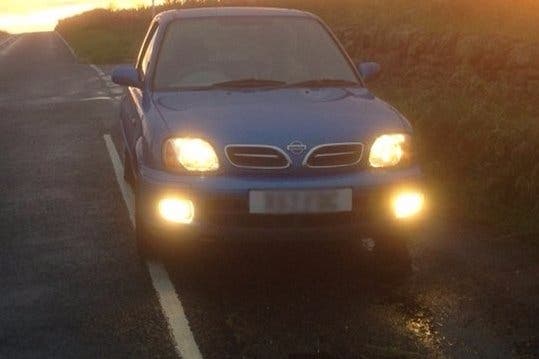13 years ago I was held at gunpoint, kidnapped and shoved into the boot of my car
What Beyond Good & Evil developer Francesco Cavallari did next - then and now.
Held at gunpoint and shoved into the boot of his own car, programmer Francesco Cavallari was forced to consider his options.
"It was a Nissan Micra - I don't know if you know those?" Francesco says, remembering. "I was in the boot of a Micra. I could barely believe I fitted."
Francesco was somewhere in Montpellier, the small French city where Michel Ancel, creator of Rayman, is based. It's usually a quiet kind of place, with historic buildings in its centre and pretty countryside all around. Drive a few miles one way and you get to the beach. Drive the other way - the way Francesco was being driven - and you're in the middle of nowhere.
"We were driving through the city and then out into the countryside at 90km/h," Francesco continues. "I remember thinking my Micra had never gone so fast."
Francesco never expected his story to be made public but, last month, some 13 years after the incident, Michel Ancel recounted his memory of the events during a YouTube livestream playthrough of sci-fi adventure Beyond Good & Evil with Double Fine boss Tim Schafer. I catch up with Francesco as he prepares to launch a new project - and discover what really happened that night.
It had been a long day at Ubisoft Montpellier, where Francesco was working on Ancel's Beyond Good & Evil at his villa studio. Francesco was usually based at Ubisoft Milan but had been brought over to help with the game's PC version. He had joined Ubisoft straight out of university and this was his third project. He remembers the team having big hopes for the game's success - beyond the cult classic it ended up as.
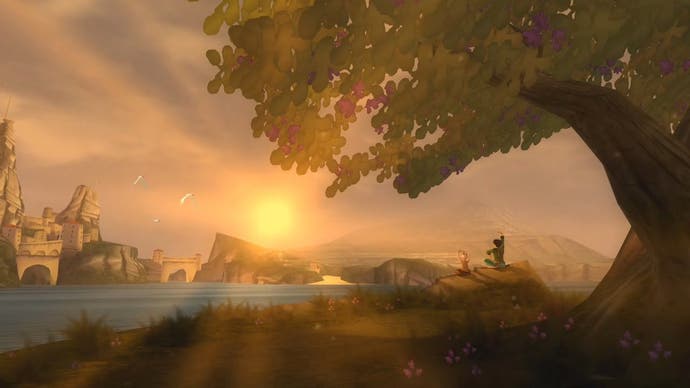
It was late summer, the 25th August 2003. Francesco remembers the date well. It was still achingly hot, so the team had been working outside on the villa's shaded patio until the sun went down.
"I was there until about 10.30pm, so it was dark when I got home," he recalls, speaking excitedly in his thick Italian accent. "I parked in the street about 100m from our residence and I saw a guy running towards me. I remember thinking, 'Oh, this guy is jogging at night, he's really motivated.'"
Not so. The guy pulled out a gun and forced Francesco back into his car.
"He was saying something in French. I could understand a little though I wasn't fluent." But, Francesco says, even if he had understood then his reaction would have probably been the same. "I was just thinking 'what?!'," he laughs. "The man asked for my wallet and watch, then told me we were going to wait here for a few minutes until his friend arrived, and then we were going for a little ride.
"I tried to talk to him - he was only 18 or 19. But then his friend turned up and shouted at me to move into the back."
Where the first guy seemed like he was open to talking, the second was older and tight-lipped. This new guy seemed more dangerous, Francesco said. Each carried a gun.
"Moving to the back was a little difficult," Francesco continues. "It was a bit ridiculous. I mean, the Micra was a two-door car. This new guy had to step back while I got out to fold down the seat. And then climb back in."
Despite both men being armed, Francesco doesn't paint them as professional criminals.
"People always say, 'You were brave! You must have been scared!' But in the situation I was rational and to be honest, I was pissed off. I was pissed off this was happening to me."
Still, Francesco tried to connect with his captors. While still thinking there was a good chance he would be killed, he tried to persuade the men to talk to him, to tell them a little about himself.
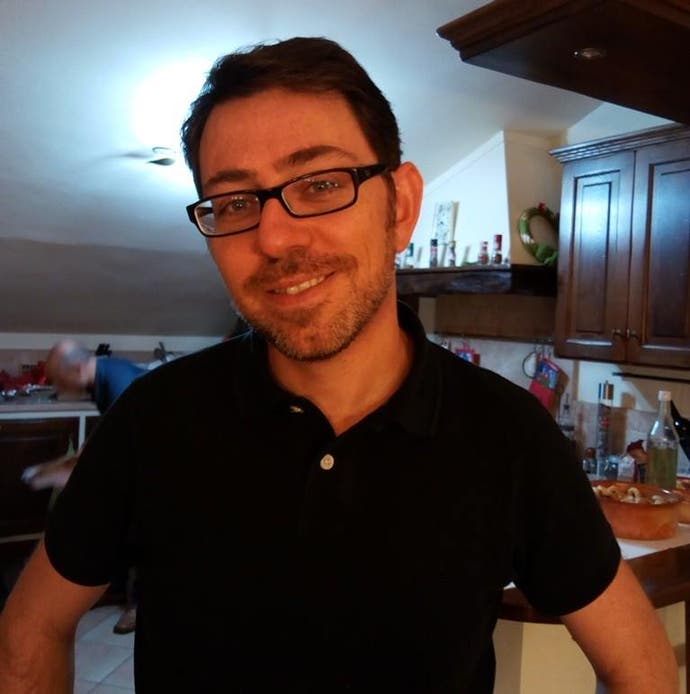
"I started talking to them more and discovered they had been in jail. I talked to them a lot. I may have finished the evening with no clothes but I am pretty sure they left with a headache," he says, proudly.
Francesco remembers feeling reassured when the men promised he could keep his wallet, now empty of his cards and money. It meant they weren't planning on killing him at least, he reckoned. But while he felt he had won a small victory, the ordeal was far from over.
13 years on, Francesco is recognisably the same guy. He's still talking people's ears off, but now he's doing it on his terms, rather than from the boot of his own car. "I quit Ubisoft in August 2014, a year-and-a-half ago," he says. "I had been working there for 15 years, for all my career. It's a great company and I've had a lot of good experiences, but now I wanted to give back, in a way."
Francesco has just spent six months in Burkina Faso setting up his own project. It's called Video Games Without Borders and is centred around creating games in countries without a solid development infrastructure. The hope is that VGWB can help local people tell stories that would otherwise go untold, at the same time, give local people jobs to earn a living for themselves and their families.
"When I was thinking about where to begin I was looking at a list of countries ranked by the quality of their internet connection," Francesco explains. "At the time, there were 196 countries on the list. Burkina Faso was 196th. I thought - if we can make a game there, we could make one anywhere."
So Francesco began to make travel plans. He had some help: his girlfriend was already working on a project in Africa, while he had a bulging book of industry contacts. Francesco has now worked at Ubisoft studios in four countries, including at Ubisoft Reflections in the UK, where his kidnapping story had preceded him. He remembers being amused at how the story had spread.
Talking to Francesco, there's no suggestion his experience in 2003 resulted in some moment of revelation - that he was freed from the boot of his car a changed man. Francesco simply remembers being happy to have escaped serious harm. It is clear, though, Francesco approached what happened with the same belief in communication that he is pushing with VGWB now. "They were young and obviously made bad decisions," he reflects, when I ask about what feelings he has about his captors. "Their life was much worse than mine."
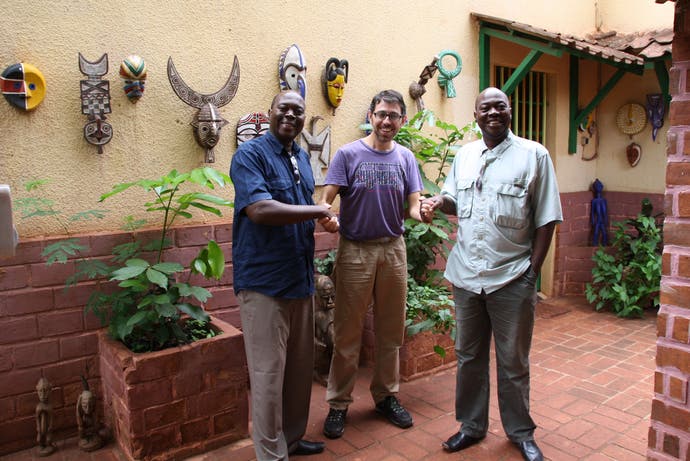
Of course, that didn't stop Francesco being scared at the time. "We stopped two times in the car," he remembers. Francesco's captors tried to access his bank account. "They asked for my PIN but due to a mix-up with my French and Italian cards, I told them the wrong number." Francesco's captors were not pleased. Staring down the barrel of a gun, he eventually remembered the code correctly. "It's my lucky day!" Francesco joked to them. "It sure is," they replied.
The second time the car stopped was at a toll booth. "I remember them singing loudly to try and cover up my shouting while they handed over the money - my money," he continues. Francesco was now in the boot after the PIN number incident and had no way idea where they were going. He did, however, have his mobile phone.
"I contorted around, got it out of my pocket and then realised... I didn't know the number for the police in France," he sighs. "I tried the number for the police back in Italy. Nope. Next I tried the number for the police in the movies - in America - 911. That didn't work either. So then I thought about calling one of my friends but I was worried they just wouldn't believe me." He pauses, puts on a panicked voice: "'Hey, I'm in the boot of my car while people are driving me away!'". So he decided to switch the phone off and put it back in his pocket. The last thing he wanted was for it ring while he was trying to win his captors round.
"Finally I realised we had turned off the main road onto a local track, where they got me out of the car. It was then they remembered to ask if I had a mobile phone." The second guy, the more dangerous-looking one, berated his accomplice for not having searched Francesco sooner, for not having demanded he empty his pockets. "They asked me to take all my clothes off. That was the scariest moment," he says. "Two guys with guns who've been in prison, in the middle of nowhere, telling you to strip.
"But I was still angry, still talking to them. So I took off just my shirt." It was summer, and Francesco was just in shorts and flip flops. He could feel the mobile in his pocket, alongside his apartment keys. He also had a napkin from lunch. Francesco says he feared what would happen if he gave up the phone now - he knew he risked angering his captors, not to mention the fact he would be handing over his only way of calling for help.
"I started playing for time. I took out my apartment keys. 'Can I keep the keys?' I asked. They said yes, you can keep the keys. In the meantime I was hiding the mobile in the napkin," he laughs. "I ask, 'Can I keep the napkin?' But the older guy saw the phone because... well, I'm not a magician." It was at this point Francesco thought the game was really up.
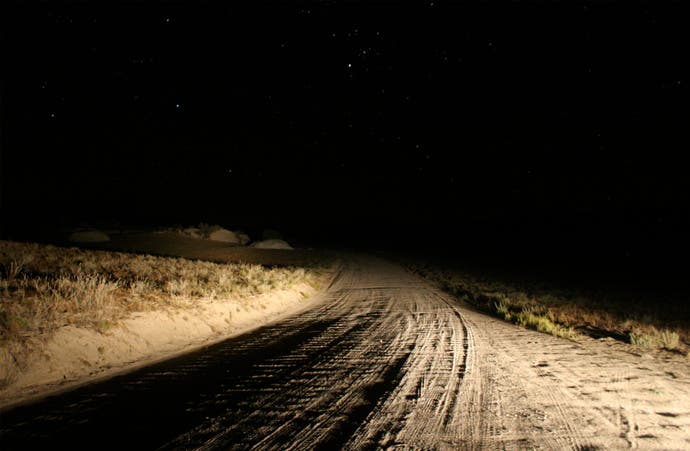
The first Video Games Without Borders title is called One World, a Million Stories and features artwork drawn in Burkina Faso. It tells a traditional African story - a rarity in video games - and hopefully will raise money for future development in Africa, too, as well as more immediate social projects.
"We made an agreement with a Spanish company which makes games for children, tablet games - like the pop-up books where you pull tabs and things move," Francesco describes. "Instead of asking for money - they're a startup, they don't have any - we asked them to let us use their software technology while we go to Burkina Faso and look for a story, and for an artist to draw it.
"There's one other priority for us - the teaching part. I worked in Burkina Faso at a computer science university and met a group named FabLab, who have a building in [the capital city] Ouagadougou. They're a bunch of young people, fellow geeks, who know about electronics. They've built their own 3D printers and are experimenting with drones." Francesco smiles. "For Burkina Faso, it may not be something you would expect.
"Anyway, we are helping them build their own games and enter the digital economy. I met a young guy there who made an app - a quiz game about Burkina Faso which he made due to a local contest. But he didn't know anything about how it could make him some money back, even with ads. And in Burkina Faso it's not so expensive to live, so you don't need your game to be a blockbuster."
Francesco and the fledgling VGWB are learning, too. It's not the first time anyone has tried this sort of project, he tells me. A company tried to found a studio in Tanzania a while back but didn't understand the realities of working there. The outfit went bust after three months just trying to deal with the country's intermittent power supply - they hired generators to keep working but at a ridiculously huge cost.
"When we raise money the goal is to give it to the charity NGOs we identified while out in the region," Francesco concludes. "These organisations can set up small projects at first, like a €1000 project to found a hairdressing school for girls in a poor district, or to help buy bicycles so people can get to work around the city. And then the projects grow in size from there."
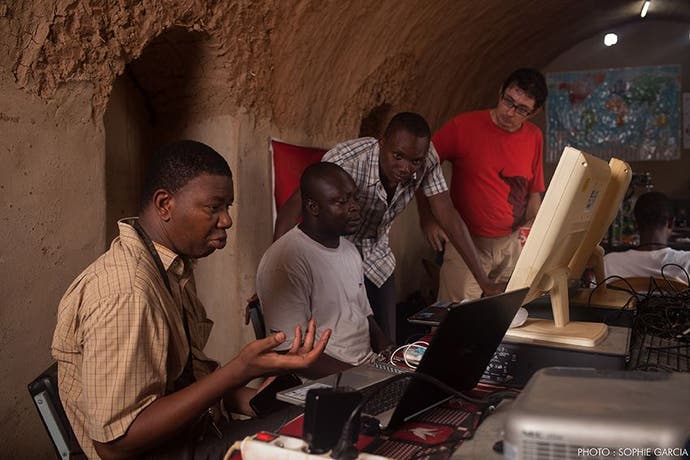
Francesco hopes to have the first VGWB game launched by June, before he returns to Africa to search for another story. If it is anywhere near as good as the story he tells of himself, he shouldn't have much trouble.
"So then they made me take everything off," he recalls. "But I still had my keys, the napkin and one flip-flop."
Despite fearing the worst, the matter with Francesco's phone only seemed to speed up the culprits' getaway. They had only ever wanted his bank account and a means of getting away. Francesco recalls how the two men drove his car away but left him behind - naked, in the middle of nowhere, but alive.
"They didn't shoot me or punch me and it was really a special moment," Francesco says, trying to recall how he felt when he realised he had been set free. "It was all the tension going down. I was getting out of this very hot boot and I was walking naked through the countryside at night. It was... very comfortable."
As the car drove one way, Francesco headed the other. It wasn't long before he started to reach houses. He knocked at a few with no luck, although it was still the middle of the night. He remembers an old man who refused to let him use his home phone, and a motorist who drove away at top speed as he ran over, still naked. "I understand, that's fine," Francesco remembers thinking.
Francesco eventually found an old woman who spoke to him through a downstairs window. "I asked her if she could please call the police as I'd had everything stolen from me. She did. She didn't let me come in. Again," he comments, "quite understandable." By that point, however, the police were already looking for Francesco - after receiving numerous calls about a naked man roaming around the outskirts of the city.
Francesco's ordeal ended with a long wait outside the woman's house for the police to arrive. It was peaceful, he remembers. "There was the countryside, the stars, and then there was a white horse walking towards me." Looming out of the darkness, the horse stopped at the edge of a nearby field. "I remember a young guy driving past in a flashy car with booming music. He stopped at the junction, looked left, saw nothing, looked right, saw nothing. Then he looked straight ahead and there was me, a naked man, standing stroking a white horse. I remember him staring, looking at me unbelieving. He stuck his head out of his car's window to see better. I raised my hand, silently in a greeting. He raised his hand too, then sped away."
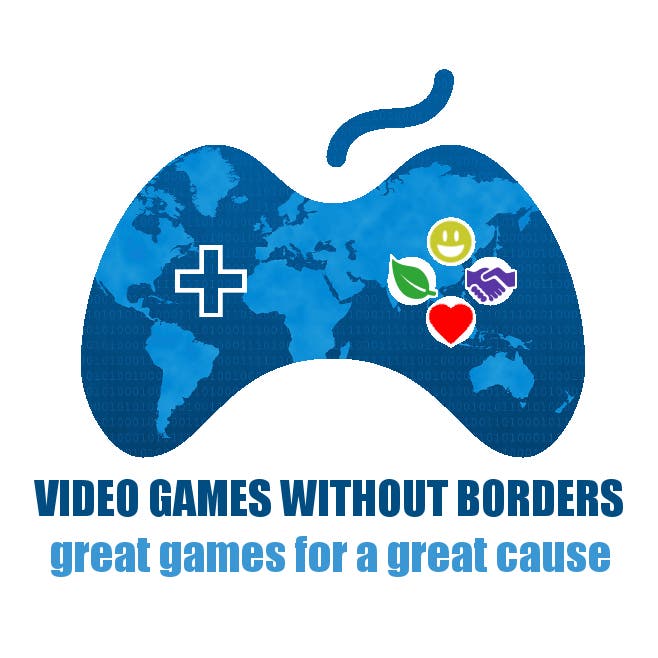
In the days that followed Francesco was reunited with his car ("The police took the wheel for DNA testing, the gear stick, the handle to open the boot, and then the headrest. Then they gave me the car back to drive away in.") and he struggled to get his money back from the bank ("Insurance doesn't cover anything if the criminals know your PIN. The only money I ever got back was the motorway toll.") But he wasn't too upset.
"Imagine if this happened to someone you know and it didn't go so well," Francesco concludes. "It could have been far worse. For me, it was €700. I'm not a rich guy, but at the end of the day it is only money." He says, thankfully, that he dealt with what happened well - there were no lingering after-effects.
Francesco is now busy putting the finishing touches to One World, a Million Stories, starting to promote the project and plan VGWB's next endeavour. As for his captors, they were caught in Paris not long after Francesco's kidnapping - trying to do the same thing to someone else. Both men ended up in jail. I ask Francesco - if he ever got a moment - if he'd like to find out what happened to them next. Francesco said he would - he'd like to talk to them some more.
